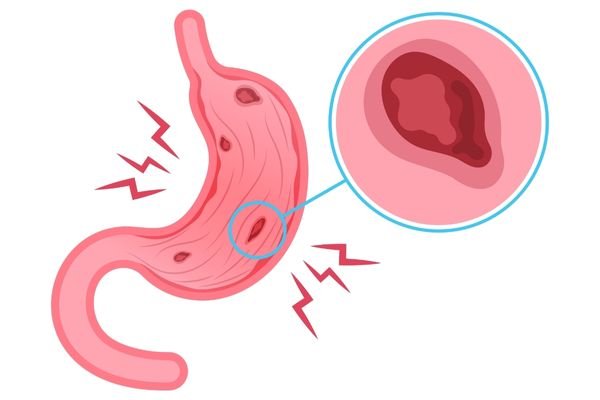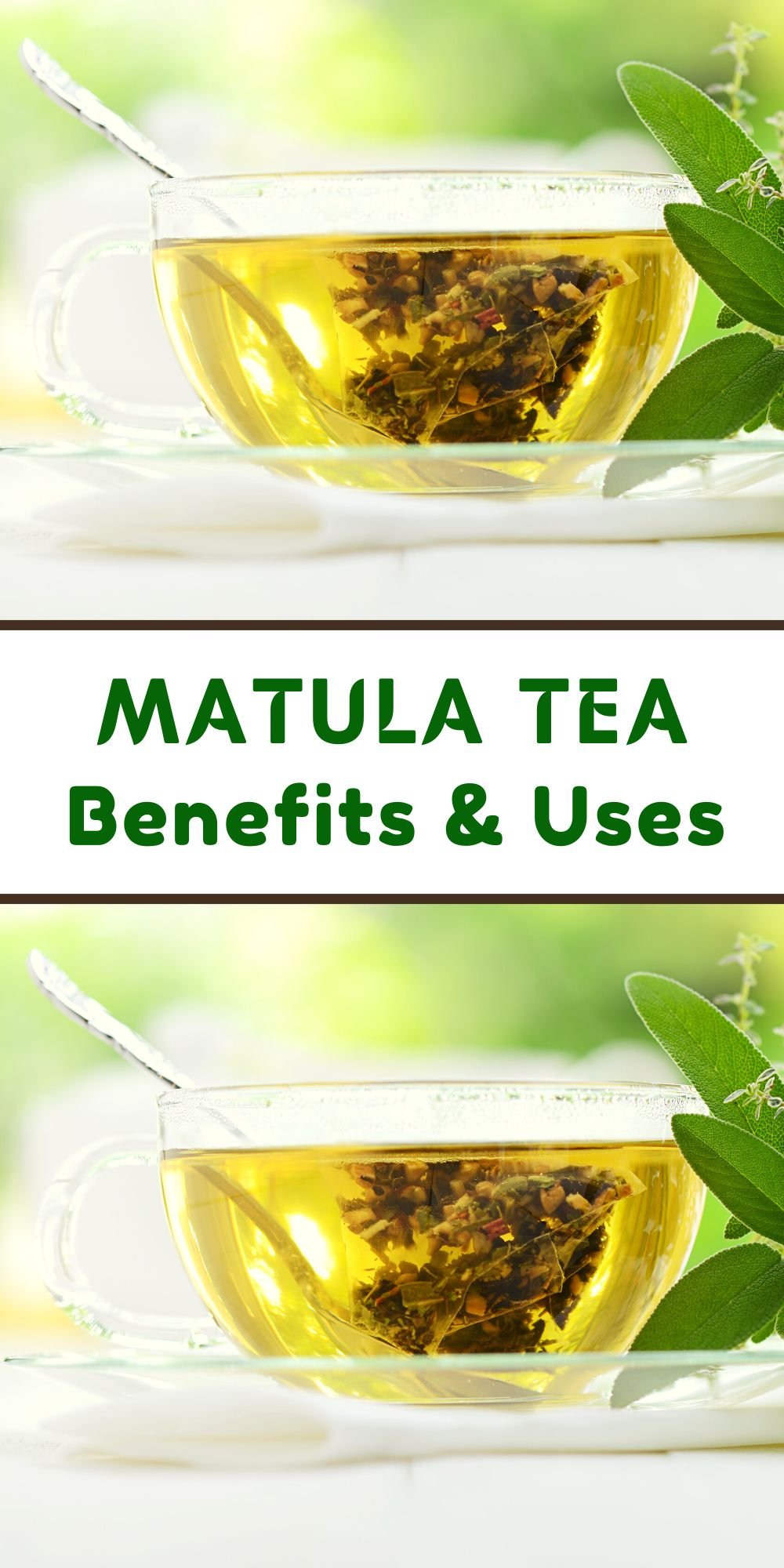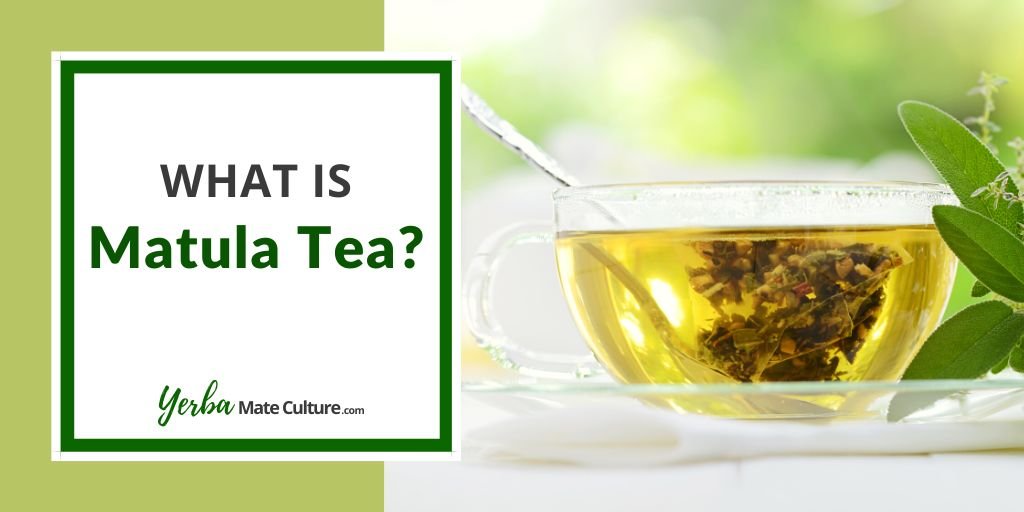Is Matula tea magic for the gut?
For people suffering from digestive distress, Matula tea could be the fix for everything from acid reflux to ulcers.
This medicinal South African herbal drink is also credited with being effective in treating a harmful strain of stomach bacteria called Helicobacter pylori (H. pylori).
Here’s everything you need to know before trying Matula tea including its benefits, side effects, and where to buy it.
What Is Matula Tea?
Matula tea is a 100% natural herbal tea with profound gut-healing properties. It’s been a homeopathic secret for treating ulcers, Candida, acid reflux, and other digestive maladies among herbalists and homesteaders for decades.
While the average person might never hear about Matula tea, bloggers and influencers are finally spilling the beans on this herbal tonic.
Most herbal teas on the market use leaves and greenery from a specific plant, flower, or bush. That means that you’re getting the health benefits of a single source. Matula tea is unique because it consists of a specific blend of natural ingredients designed to heal the gut.
How Does Matula Tea Taste?
Matula tea has an earthy flavor with hints of natural sweetness. The flavor profile is very complex and hard to describe because there are so many ingredients.
However, it can be described as tasting something like a mild green tea with several fruity and herby notes coming through. Hints of gentle spiciness also pepper each sip.
Matula Tea Ingredients
Don’t settle for imitations when purchasing Matula tea. This disease-fighting tea is packed with synergistic, antioxidant-rich ingredients.
Genuine Matula tea should contain these ingredients:
- Olive Leaf (Oleo Europaea or Oleo Africana): Derived from the leaves of olive plants, this gem is full of an active ingredient called oleuropein that contains strong antioxidant and anti-inflammatory properties. Olive leaf is credited with improving heart health, lowering blood pressure, lowering cancer risks, and helping to treat herpes.
- Licorice Root (Glycyrrhiza Glabra): Licorice root is commonly used in homeopathic treatments for viral infections, heartburn, acid reflux, and coughs. A compound called glycyrrhizin that gives licorice its candy-worthy flavor is also responsible for its antioxidant, anti-inflammatory, and antimicrobial properties.
- Honeybush Leaf (Cyclopia Intermedia): A popular South African herbal remedy, honeybush leaf is derived from a plant with pale-yellow flowers. Honeybush leaves are rich in antioxidants that are known to protect against cardiovascular ailments, diabetes, neurodegenerative diseases, and certain cancers.
- Rooibos Leaf (Aspalathus Linearis): Rooibos plant is packed with antioxidants. In addition to supplying benefits for heart health and blood pressure, rooibos tea also delivers antioxidants called quercetin and luteolin that have been shown to kill cancer cells and prevent tumor growth.
- Wild Guava Fruit and Leaf (Psidium Guajava): Guava is filled with natural fiber that benefits the digestive system. In addition, guava’s antimicrobial properties have been credited with neutralizing harmful microbes that cause diarrhea. Research also shows that guava may protect the heart from free radicals, balance blood sugar, and relieve menstrual cramps.
- African Water Berry Leaf (Syzygium Cordatum): According to research the leaves, roots, bark, and fruits of the African water berry plant have been used as ethnomedicines against several human diseases such as gastrointestinal disorders, burns, sores, wounds, colds, coughs, respiratory complaints, sexually transmitted infections (STIs), tuberculosis, fever, and malaria. It is commonly used as a remedy for stomach aches, digestive issues, fevers, colds, and diarrhea throughout Africa.
- Wild Garlic Root and Rhizome (Tulbachia Violceae): Known for its striking purple flowers, this edible bulb plant has a variety of antibacterial, antibiotic, and antiseptic properties.
Matula Tea Benefits
Matula tea is a natural potion packed with antioxidants that help the body to fight back against oxidative stress and free radicals.
As a result, this tea has the potential to help with heart health, cancer prevention, weight loss, and so much more. It can even help to keep skin and organs younger.
However, most people who stumble upon the benefits of Matula tea are usually looking for natural treatments for stomach ailments.
1. Natural Treatment for H. pylori
Matula tea is often considered the best treatment for a harmful bacterial strain called H. pylori.
According to Johns Hopkins Medicine, H. pylori is a type of bacteria that attacks the stomach. Its damaging effects on the small intestine can lead to soreness and inflammation.
When left untreated, an overgrowth of H. pylori bacteria can lead to painful peptic ulcers. In fact, H. pylori is one of the main causes of ulcers. It can also lead to stomach cancer.
Health experts aren’t completely clear on how H. pylori infections are spread. It’s believed that this bacterial strain can be passed through kissing, drinking infected water, eating food that was not prepared in a safe way, or coming into contact with infected stool or vomit.
2. Can Be Used to Treat Candida Albicans
Candida Albicans is a serious yeast infection that overtakes the gastrointestinal system.
While diet, stress, and genetics can make a person more susceptible to having their gut overtaken by Candida overgrowth, anyone who has taken antibiotics within the past is especially vulnerable. Antibiotic treatment kills the good bacteria responsible for keeping the gut healthy.
Some herbalists claim that Matula tea can kill 90% of Candida. While research about Matula and Candida is limited, we do know that Matula tea is commonly used to treat gastrointestinal infections throughout Africa.
Another natural option that you can use to treat Candida is a Central American herbal remedy called muicle tea.
3. May Relieve Symptoms of Acid Reflux
You don’t have to have serious stomach issues to enjoy the benefits of Matula tea. This tea is considered to be a general digestive aid.
Many people swear by this tea for relieving painful, annoying symptoms of acid reflux and gastroesophageal reflux disease (GERD). It may be an alternative to prescription medicines.
4. Promotes Better Digestive Tract Health
Matula tea is great for the treatment of stomach ailments, maintenance of a healthy digestive tract, and prevention of bacterial imbalances within the gut.
There’s no need to wait for something to go wrong to start enjoying this tea. Like all herbal teas, Matula tea is refreshing and hydrating.
Its robust assortment of antioxidants can be great for everything from disease prevention to energy.
I recommend that you also take a look at my article about manglier tea benefits, as it is also a potent herbal remedy for improving digestion.
5. Contains Antioxidants
As mentioned above, Matula tea is loaded with antioxidants.
While an ordinary herbal tea might contain a few different antioxidants, Matula tea’s “cocktail” profile means that you’re enjoying a cascade of antioxidants belonging to different classes.
It’s like getting the benefits of drinking 10 different types of herbal tea in one serving!
Matula Tea Side Effects
There is no extensive research on the side effects of Matula tea but it has been used for centuries and there are no reported side effects.
All ingredients in Matula tea are natural herbs that are generally considered safe. It’s also caffeine free so you don’t have to worry about jitters or not being able to sleep after drinking it.
However, if you are pregnant, breastfeeding, or have a medical condition, I recommend that you consult your doctor before drinking Matula tea.
Is Matula Tea Effective for H. pylori?
It’s estimated that H. pylori infection may be present in more than half the people in the world!
While infection often occurs during childhood, most people walk around blissfully unaware that their digestive systems are harboring this potentially dangerous bacteria strain. Ultimately, this could lead to unexplained ulcers later in life that cause serious problems.

While a typical H. pylori infection is silent, the following symptoms could indicate that your infection is worsening:
- Aching, burning pain in the stomach
- Nausea
- Bloating
- Loss of appetite
- Excessive burping
- Unintentional weight loss
When ulcers are left untreated, they can progress to cause bleeding, perforations in the stomach wall, and blockages in the digestive system.
This circles back around the question of Matula tea’s efficacy for treating H. pylori. The truth is that studies on using Matula tea to treat H. pylori are very limited.
Knowledge about Matula and H. pylori mostly comes from the fact that this tea is the go-to “medicine” for treating harmful gut bacteria in several African countries.
However, a major study done on the antibacterial benefits of Matula tea in 2006 largely confirmed the claims that herbalists have been making for decades. Researchers involved in the study found that Matula tea displayed significant antibacterial effects.
Ultimately, the study concluded that Matula tea displays “potent activity against Helicobacter pylori.”
Where to Buy Matula Tea?
Unfortunately, you can’t find Matula tea at Walmart or order it from Amazon. If you want authentic Matula tea, you can buy it from matulatea.com — it’s quite pricey but this is the real deal and you get 60 tea bags.
One box of Matula tea will be enough for the recommended 30-day treatment period.
Making a cup of Matula tea is easy:
- Steep one tea bag in hot water for about 5 minutes.
- You can add honey to improve the taste.
- Drink one cup every morning and evening on an empty stomach and swirl the tea in your mouth before swallowing it.
Final Thoughts on Matula Tea – Should You Try This Herbal Formula?
Don’t mistake enthusiasm for Matula tea for medical advice.
If you suspect that you’re suffering from a bacterial infection, it’s important to be seen by a medical professional. The presence of H. pylori can be confirmed with an upper endoscopy, blood test, stool test, or breath test.
It’s pretty clear that Matula tea offers significant benefits for gut health. While Matula tea has shown proven benefits for stomach ulcers, the real news here is that this herbal blend may actually prevent stomach cancer.
There’s no need to wait for stomach trouble to show up before turning to Matula tea. Anyone can start enjoying enhanced gut health using this tea today!
Save on Pinterest:






